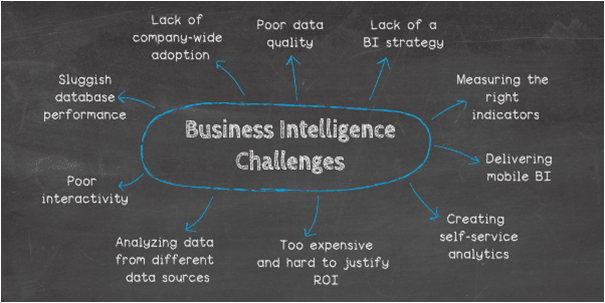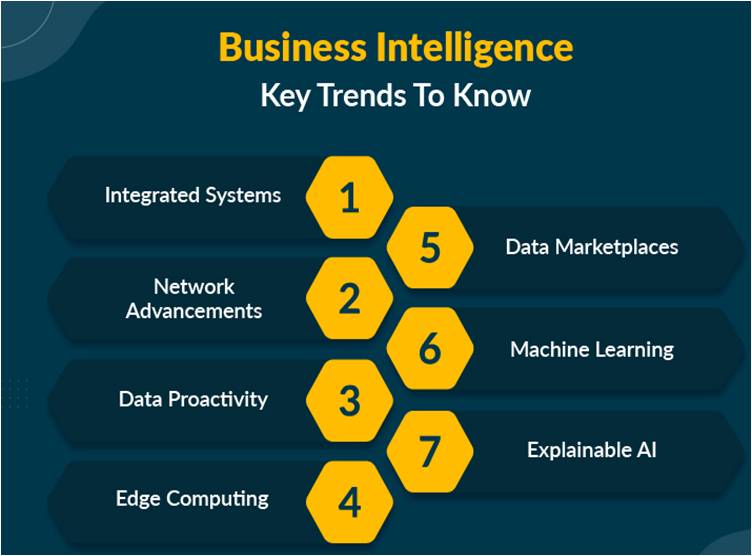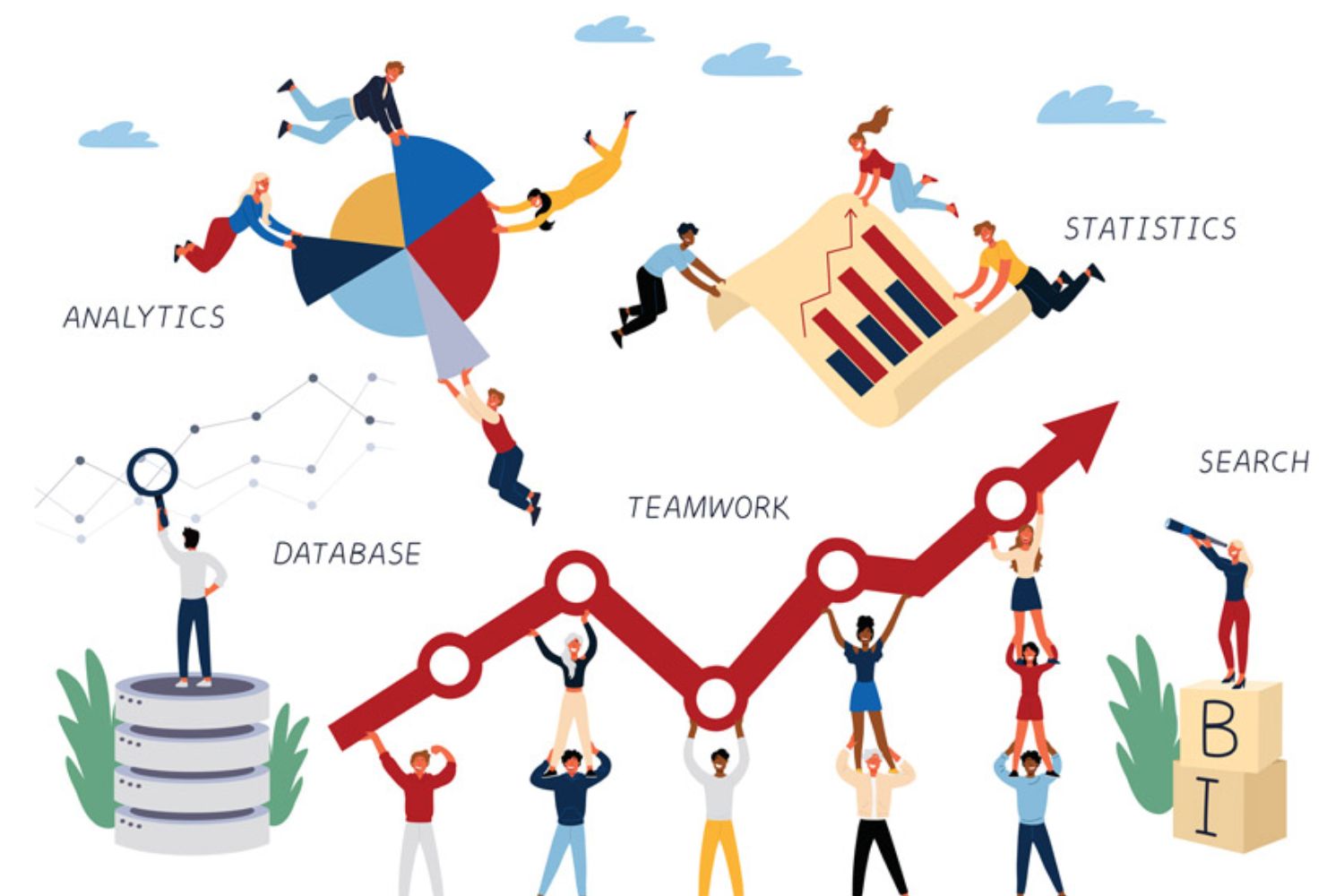
Hey Guy’s Let’s have a Look On Business Intelligence
In the digital age, data has become a business’s most valuable asset. To make sense of the vast sea of information, organizations have turned to Business Intelligence (BI) as their guiding star. BI is not merely a tool but a multifaceted approach that empowers businesses to uncover hidden insights, steer their strategies, and sail toward success in a turbulent sea of competition. In this deep dive into Business Intelligence, we will explore its intricacies, its transformative potential, and how to navigate the uncharted waters of data-driven decision-making.


THE SIGNIFICANCE OF BI
Business Intelligence isn’t just a fancy buzzword; it’s a vital asset. It empowers businesses to improve operational efficiency, enhance decision-making, gain customer insights, and maintain a competitive edge. By analyzing data, organizations can tailor their strategies to meet market demands and identify emerging trends and competitors.
WHY BI MATTERS
The significance of BI lies in its capacity to drive data-driven decision-making. It empowers organizations to enhance their operational efficiency, boost customer satisfaction, gain competitive advantages, and achieve scalable growth. By extracting insights from data, companies can adapt to changing market conditions and remain agile in the face of uncertainty.

The Security and Cost-Effectiveness in Business Intelligence
In the dynamic realm of Business Intelligence (BI), the symbiotic relationship between security and cost-effectiveness forms the bedrock of successful implementation. On the security front, organizations employ robust measures such as data encryption, stringent access controls, and regular audits to safeguard the integrity of their data. The fortification extends to secure integration practices, ensuring that the amalgamation of diverse data sources remains resilient against potential vulnerabilities.

Simultaneously, cost-effectiveness in BI is achieved through strategic choices like embracing cloud-based solutions for scalable infrastructure, leveraging open-source BI tools to trim licensing expenses, and optimizing data storage practices. The investment in user training not only enhances proficiency but also contributes to long-term efficiency gains. Ultimately, a holistic approach that considers the total cost of ownership ensures that organizations navigate the BI landscape with both financial prudence and data integrity at the forefront.
Challenges in the Deep Dive of Business Intelligence
Navigating the depths of BI is not without challenges. These challenges include ensuring data quality, integrating disparate data sources, bridging the skill gap, managing costs, and maintaining data security. High data quality is crucial to derive accurate insights, while data integration can be complex, especially when dealing with diverse data sources.

Finding and retaining skilled BI professionals can be a struggle, and the costs associated with implementing BI solutions can be significant. Data security is paramount in an era where data breaches are a persistent threat.

The Current Landscape of Business Intelligence
In the ever-evolving realm of business intelligence (BI), several trends are shaping the current landscape. As of now, organizations are increasingly integrating artificial intelligence and machine learning into their BI tools for advanced analytics and automation. Cloud-based solutions are gaining traction, offering flexibility and scalability.
The demand for self-service BI continues to rise, empowering non-technical users. Real-time analytics and mobile BI are becoming essential for on-the-go decision-making. Additionally, a focus on data governance, quality, and natural language processing reflects the ongoing priorities in the BI space.

The Power of Choice: Why Choose Business Intelligence (BI) for Your Organization
In a data-driven world, the choice to embrace Business Intelligence (BI) is more than a strategic decision—it’s a transformative one. BI empowers organizations to navigate the complexities of data, turning raw information into actionable insights. The ability to make informed decisions, enhance operational efficiency, gain customer insights, and maintain a competitive edge makes BI a cornerstone of modern business strategies.
With scalable solutions, real-time analytics, and a focus on user empowerment, BI is not just a tool; it’s a catalyst for growth and success. Choose BI to unlock the full potential of your data and steer your organization toward a future of informed, strategic decision-making.

The Global Impact of Business Intelligence
In an era dominated by interconnectedness, Business Intelligence (BI) stands as the global conduit for organizations navigating the complexities of an ever-expanding world. BI’s influence transcends borders, offering a panoramic view of data from diverse corners of the globe. It serves as the compass for real-time decision-making, providing executives, regardless of their geographical location, with a pulse on global trends.
The true power of BI lies not just in its analytical prowess but in its cultural fluency, unraveling the intricacies of markets worldwide. Whether interpreting consumer behavior in Europe or supply chain dynamics in Asia, BI facilitates a nuanced understanding that resonates across cultural landscapes. Language ceases to be a barrier as BI platforms converse fluently in multiple tongues, fostering collaboration on a global scale. Compliance, a labyrinth of regulations on the international stage, becomes manageable through BI’s transparent reporting and analytics. In essence, BI is the key that unlocks the door to a borderless world of data, where organizations thrive on insights that know no boundaries.
Why Choose Business Intelligence?
In the pulsating world of business, the choice to embrace Business Intelligence (BI) is more than a strategic decision—it’s a pathway to unlocking untapped potential. BI empowers organizations to convert raw data into actionable insights, offering a panoramic view of their operations. The real-time analytics provided by BI becomes the guiding light for decision-makers, fostering agility and informed choices. With the ability to integrate and analyse data from diverse sources, BI transcends traditional boundaries, catering to the needs of a globalized marketplace.Its role in enhancing efficiency, reducing costs, and navigating complex data landscapes makes BI not just a tool but a transformative force shaping the future of intelligent business practices.

Choosing BI isn’t merely adopting technology; it’s embracing a dynamic ally that propels businesses into a realm where data isn’t just information but the key to strategic success.
The Soaring Popularity of Business Intelligence
In the dynamic landscape of modern business, the popularity of Business Intelligence (BI) is not merely a trend but a strategic imperative. BI’s widespread acclaim stems from its ability to turn raw data into actionable insights, providing businesses with a competitive edge. Its user-friendly interfaces and intuitive data visualization tools make complex information accessible to decision-makers at all levels, fostering a culture of data-driven decision-making.

The real-time analytics offered by BI enables organizations to adapt swiftly to market changes and seize opportunities. As businesses increasingly recognize the value of informed decisions, BI’s popularity continues to soar, becoming an indispensable ally in the pursuit of efficiency, innovation, and sustained success.The real-time analytics offered by BI enables organizations to adapt swiftly to market changes and seize opportunities. As businesses increasingly recognize the value of informed decisions, BI’s popularity continues to soar, becoming an indispensable ally in the pursuit of efficiency, innovation, and sustained success.
The Future Landscape of Business Intelligence
The horizon of Business Intelligence (BI) unfolds into a future marked by unprecedented innovation and transformative capabilities. Augmented analytics is poised to reshape the BI landscape, making data interpretation more intuitive and accessible. Artificial Intelligence (AI) and machine learning will not only automate routine tasks but elevate decision-making by uncovering intricate patterns within vast datasets.

The future of BI holds promises of predictive insights with unparalleled accuracy, empowering organizations to anticipate trends and proactively respond to market dynamics. As data becomes the lifeblood of businesses, BI will evolve from a mere tool to a strategic partner, guiding enterprises through the intricate realms of a data-driven ecosystem. In this future landscape, BI isn’t just about processing information; it’s about harnessing the power of data to illuminate the path toward innovation, efficiency, and strategic foresight. The journey into the future of BI is not a choice; it’s a navigation into a realm where insights aren’t just valuable—they’re indispensable.

